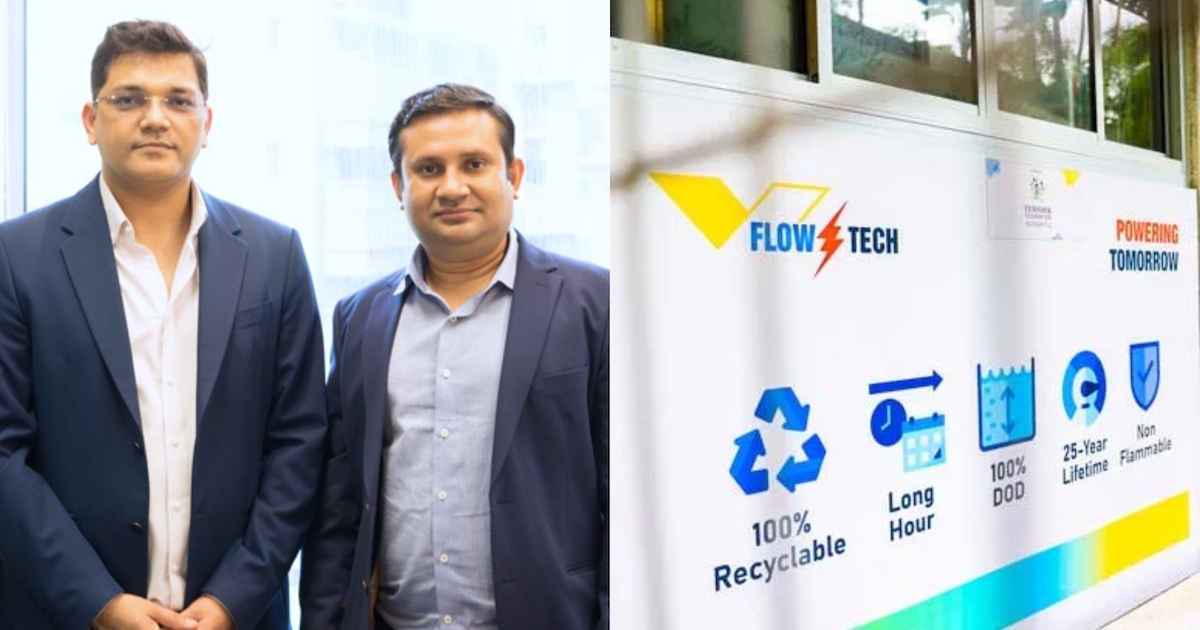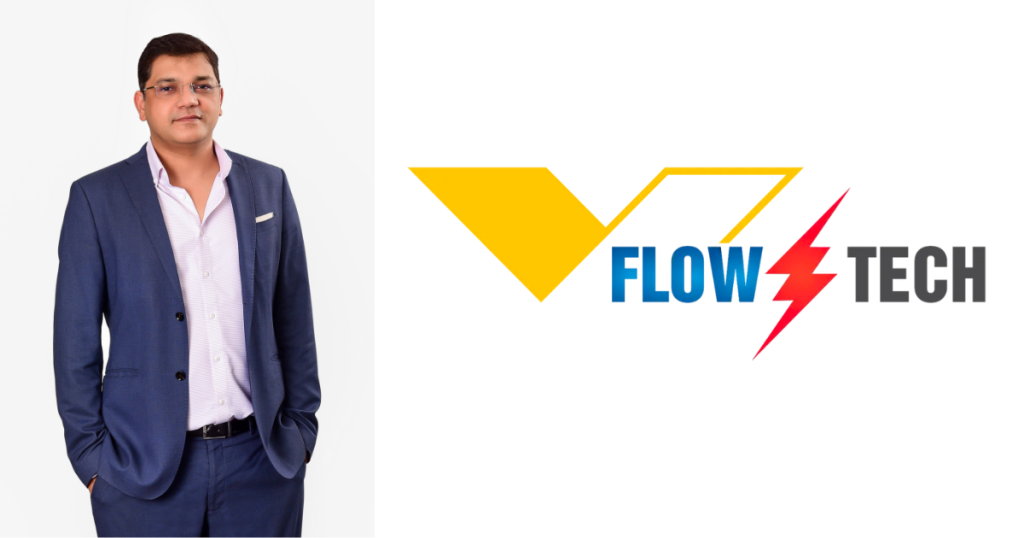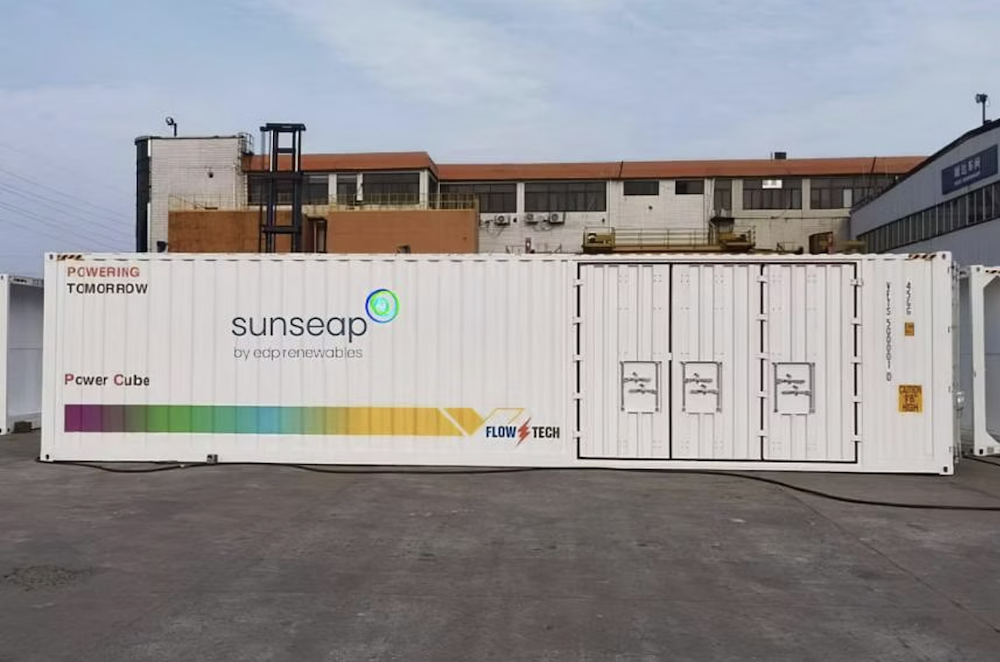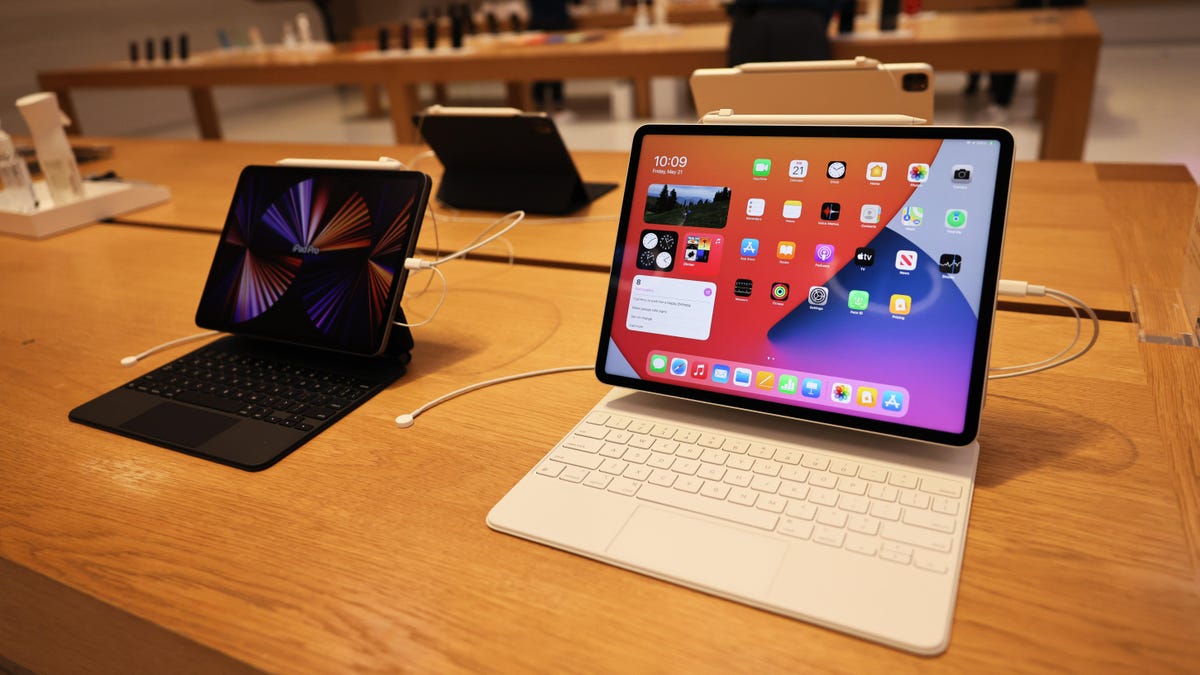From EV chargers to powering Pulau Ubin: How this S’pore startup is redefining energy storage
Vanadium flow batteries offer a promising alternative to traditional forms of energy storage, with longer durability and less wastage.

The net zero mission is all about sustainability, from how energy is generated to the manner in which it is stored.
As per the International Energy Agency, the world is set to add as much renewable power in the five years starting 2023 as it did in the 20 years prior. Renewable energy adoption is surpassing forecasts and more so than ever, there’s a need for solutions to store this energy sustainably.
Currently, lithium-ion batteries are the most popular form of energy storage. They are used in all sorts of devices including phones, laptops, and electric vehicles (EVs).
Unfortunately, these batteries leave much to be desired when it comes to the efficient use of energy. They need to be replaced fairly often and lose capacity over time — you might have noticed that your electronics run out of battery quicker after a few years of use.
In contrast, vanadium flow batteries are an emerging technology which can last a lot longer, up to 25 years, without degradation. Most of the components of vanadium flow batteries can also be recycled and reused.
Making energy storage sustainable
 Dr. Avishek Kumar is the CEO of VFlowTech / Image Credits: VFlowTech
Dr. Avishek Kumar is the CEO of VFlowTech / Image Credits: VFlowTechFounded in 2018, VFlowTech is a Singapore-based startup working on the development of vanadium flow technology.
“Although the origins of vanadium flow batteries date back to the 1980s, they encountered challenges such as parasitic losses,” says Dr. Avishek Kumar, CEO of VFlowTech. These challenges limit the efficiency and usability of these batteries.
“To combat such issues, VFlowTech embarked on a mission to redefine this technology, with a clear vision of developing the most competitively priced and scalable vanadium flow batteries globally.”
The company is making strides in improving the performance and sustainability of these batteries, all of which will prove integral if vanadium flow is to become the future of energy storage.
“Our commitment to safety and environmental friendliness positions our battery technology as a sustainable choice for long-duration energy storage,” Dr. Kumar explains.
Over time, vanadium flow batteries could benefit a variety of industries, powering grid services, EV chargers, and telecom towers. In line with Singapore’s net zero vision, VFlowTech envisions 30 per cent of the country’s energy needs being powered by vanadium flow batteries by 2050.
Challenges to vanadium flow adoption
Although vanadium flow batteries offer a number of benefits — beyond the long lifespan, they also have low maintenance requirements and minimise energy loss — there are challenges in scaling up and making them mainstream.
“The upfront expense presents a significant barrier to adoption, particularly for businesses and industries operating within tight budgets,” Dr. Kumar says. The being said, he clarifies that “the total cost of ownership over the lifespan of vanadium flow batteries often proves to be cost-effective”.
 Image Credits: VSUN Energy
Image Credits: VSUN EnergyIn industries such as automotives, there are a number of operational considerations which also stand in the way of using vanadium flow batteries. “It would necessitate substantial research and development efforts, adjustments in manufacturing processes, and potential updates to infrastructure for charging and maintenance.”
There is also a need to raise awareness about the benefits of vanadium flow batteries. “They are not as widely recognised or understood as more conventional energy storage solutions, such as lithium-ion batteries.”
Dr. Kumar believes that this requires constant engagement with industry stakeholders, policymakers, and the public. Educational efforts will play a key role in accelerating the adoption of this technology.
Successes so far
 VFlowTech has built a container-like energy storage system that can store energy from the sun or wind / Image Credit: VFlowTech
VFlowTech has built a container-like energy storage system that can store energy from the sun or wind / Image Credit: VFlowTech To date, VFlowTech has launched a number of real-world solutions demonstrating the use of vanadium flow batteries. In Pulau Ubin, the company has deployed its 1MWh long-duration energy storage system, helping eliminate the use of diesel generators on the island.
“This is a significant testament that vanadium flow batteries are capable of powering small communities, and we believe that by scaling this technology, we are able to power larger communities and islands like Singapore.”
Beyond Singapore, the company is also involved in rural electrification projects in India and parts of Africa. These involve the storage of solar and wind-generated power in VFlowTech PowerCube units. “Furthermore, our batteries have also been distributed in Japan to help act as a reliable energy backup resource during natural disasters,” Dr. Kumar adds.
VFlowTech is also making headways in the EV sector, starting with EV chargers powered by vanadium flow batteries. “We are addressing the core of the EV ecosystem, aiming to clean the power source of EVs right from the roots.”
Chargers offer an ideal way to get a foot in the industry as using vanadium batteries to power the vehicles themselves poses a bigger hurdle. “Because of their low power density, vanadium flow batteries are too large for vehicle application. The primary hurdle lies in reimagining vehicles with flow battery systems instead of the traditional lithium-ion batteries.”
Proving the utility of these batteries through EV chargers could serve as valuable evidence and help convince EV makers to design vehicles using this technology as well.
Embark on your startup journey with MAS-regulated ANEXT Bank, one of Singapore’s first digital banks for SMEs.
Featured Image Credit: NTU / VFlowTech
Also Read: This S’pore startup is transforming the construction and landscaping sectors with clean energy

 JimMin
JimMin 





























